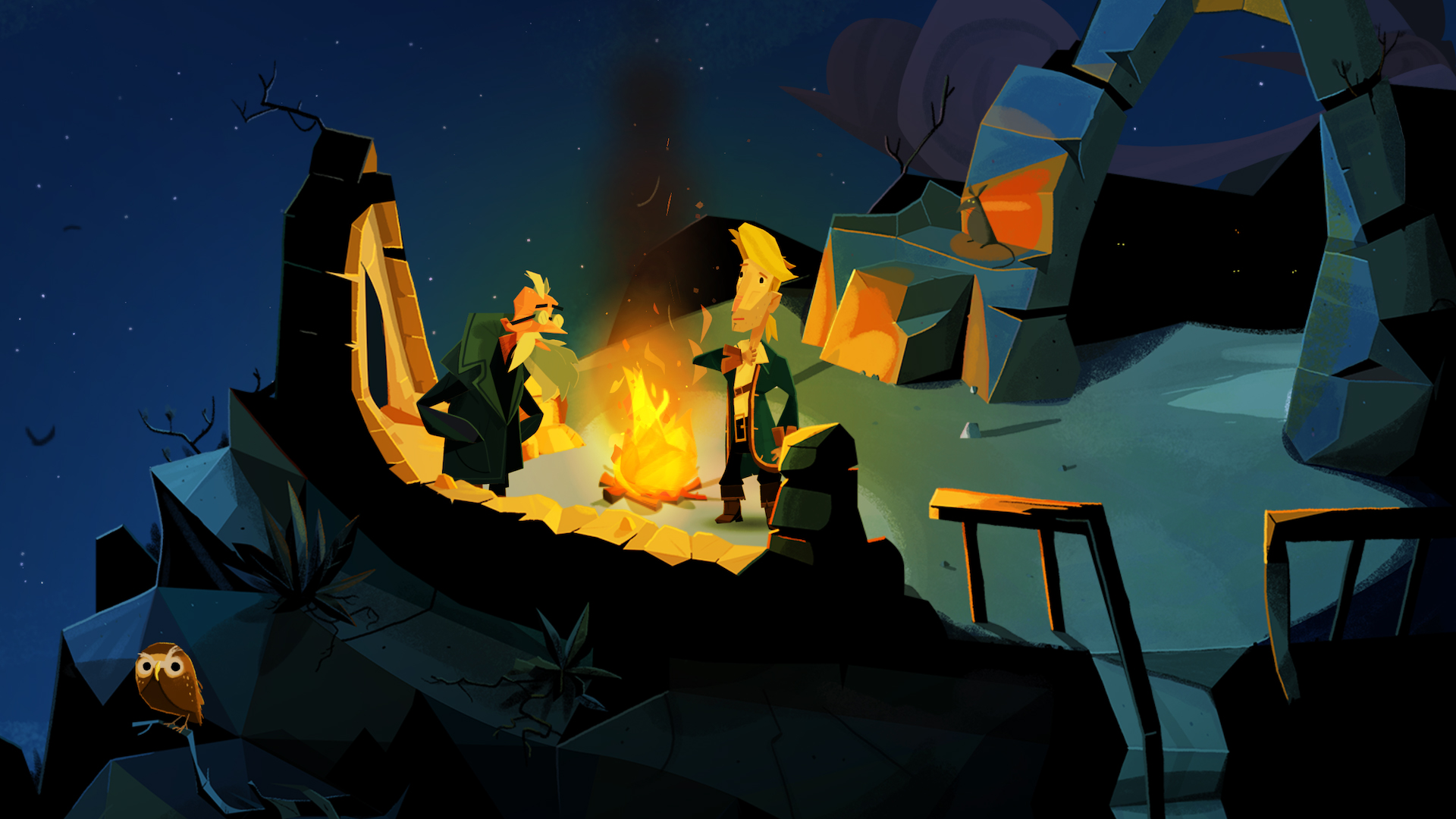GamesRadar+ Verdict
Return to Monkey Island is a heartfelt and nostalgic return to a point-and-click adventure series that had long been left behind. It's fun, smart, and intuitive, with a story and presentation that is surprisingly self-aware. Whether this is your first brush with Guybrush Threepwood or your sixth, Return to Monkey Island is a swashbuckling adventure you won't want to miss.
Pros
- +
Smart, sharp writing
- +
Beautiful art-style
- +
Intuitive interface and inventory
Cons
- -
Story threads are left unresolved
- -
Archipelago is underutilized
- -
A few puzzles require leaps in logic
Why you can trust GamesRadar+
Return to Monkey Island encapsulates the point-and-click adventure flow state. You'll regularly reach an impasse while playing; deadlocked with an assortment of random items in your inventory, and a series of cryptic clues scribbled on a notepad. Puzzles gate progression and progression is earned through experimentation. And so you encircle Mêlée Island, cursing its delightful inhabitants at every pass. Eventually, some logic-bending solution will become apparent after an off-hand observation – doesn't it always. And when that solution clicks into place, you begin to flow around the playable space like a rapid flood of water unleashed – using objects here and giving items there – until you inevitably crash against the next blockade.
Nobody crafts a creative narrative-adventure levee break quite like writer-and-designer duo Ron Gilbert and Dave Grossman. That was true in October 1990, when the pair helped release the iconic The Secret of Monkey Island with Lucasfilm Games, and that remains the case thirty years later, as developer Terrible Toybox takes us on an unexpectedly nostalgic Return to Monkey Island. It's a beautifully written, wonderfully acted, and finely scripted adventure game that captures the spirit of the past without becoming entirely subservient to it.
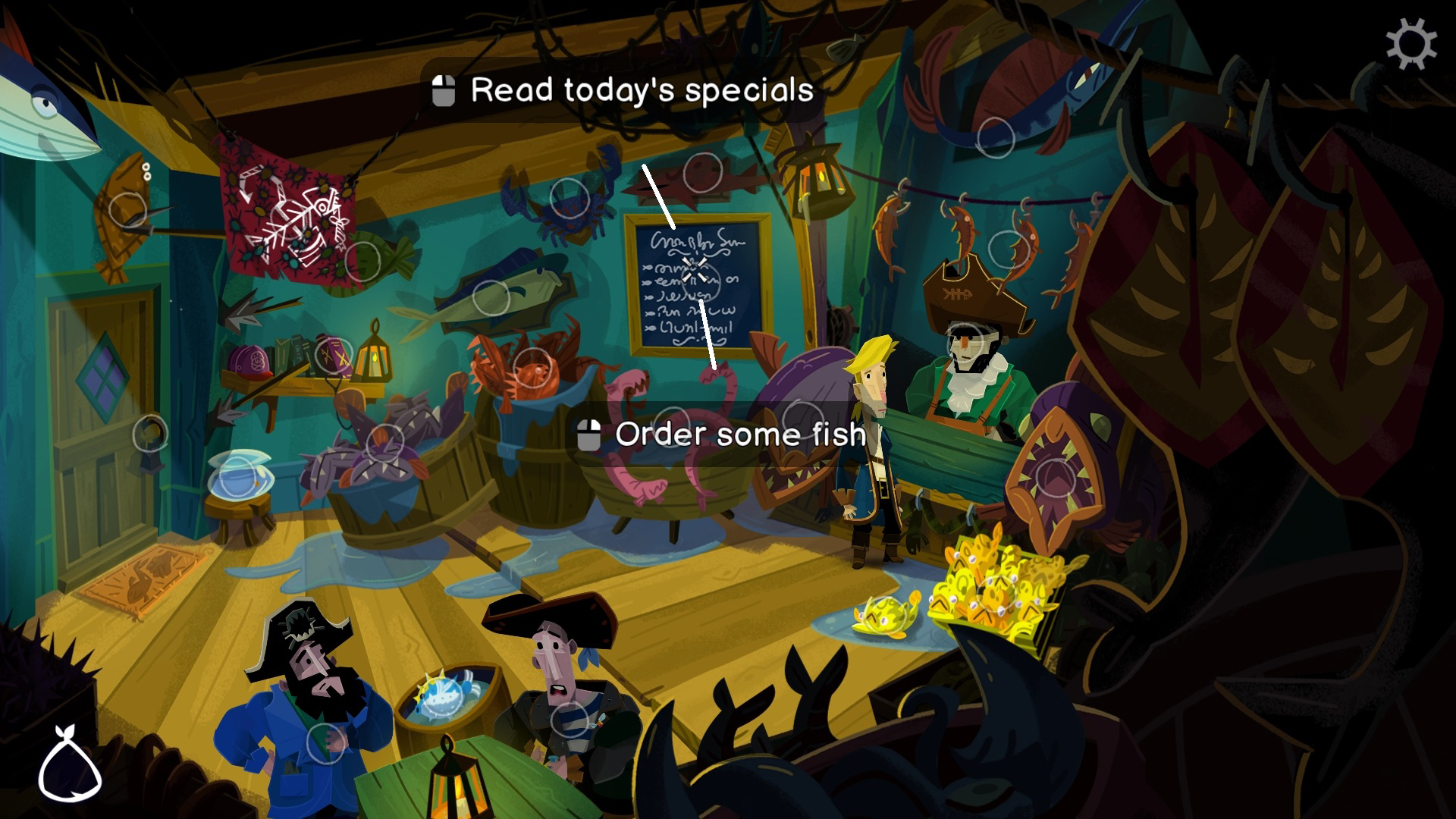
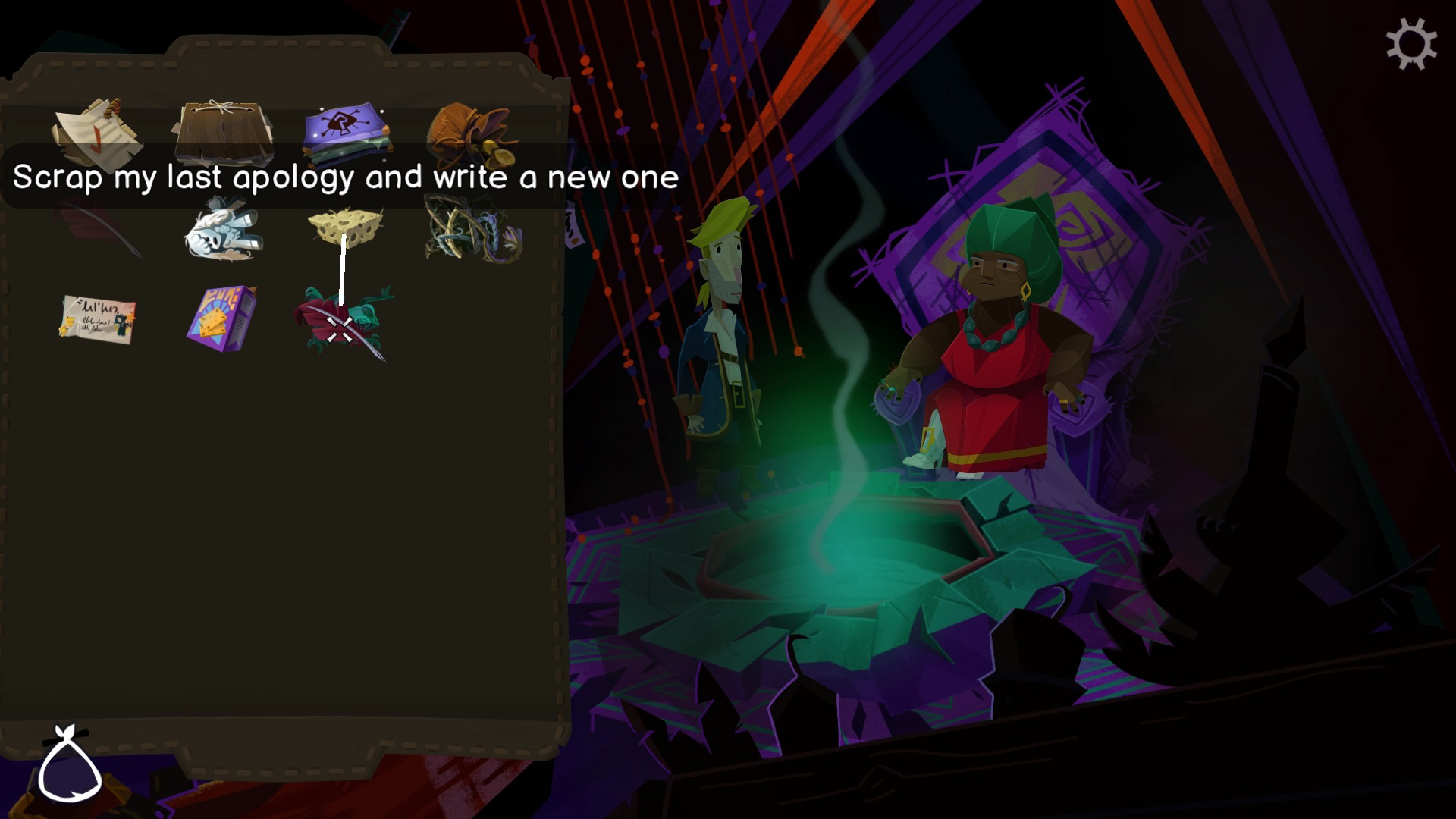
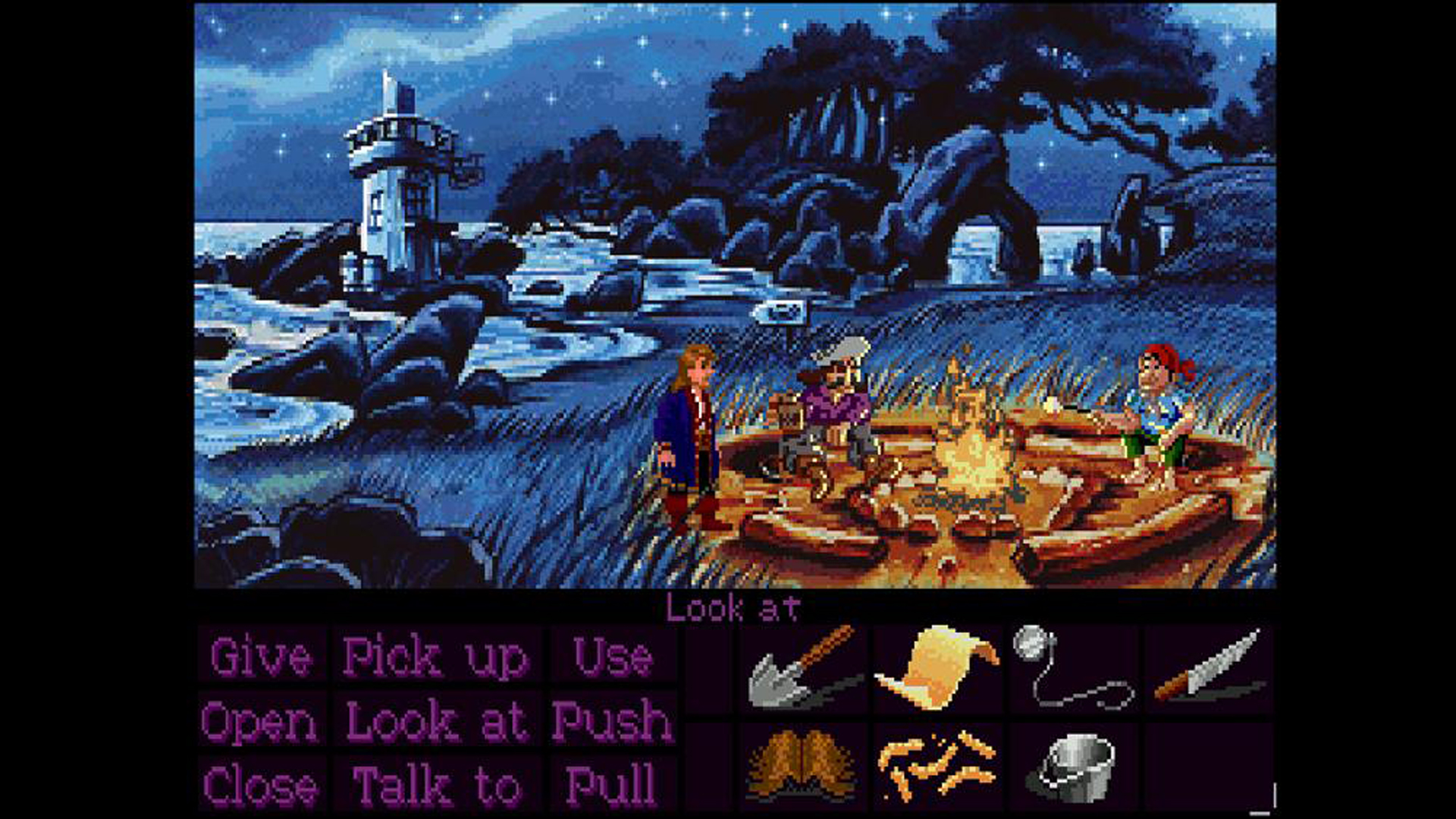
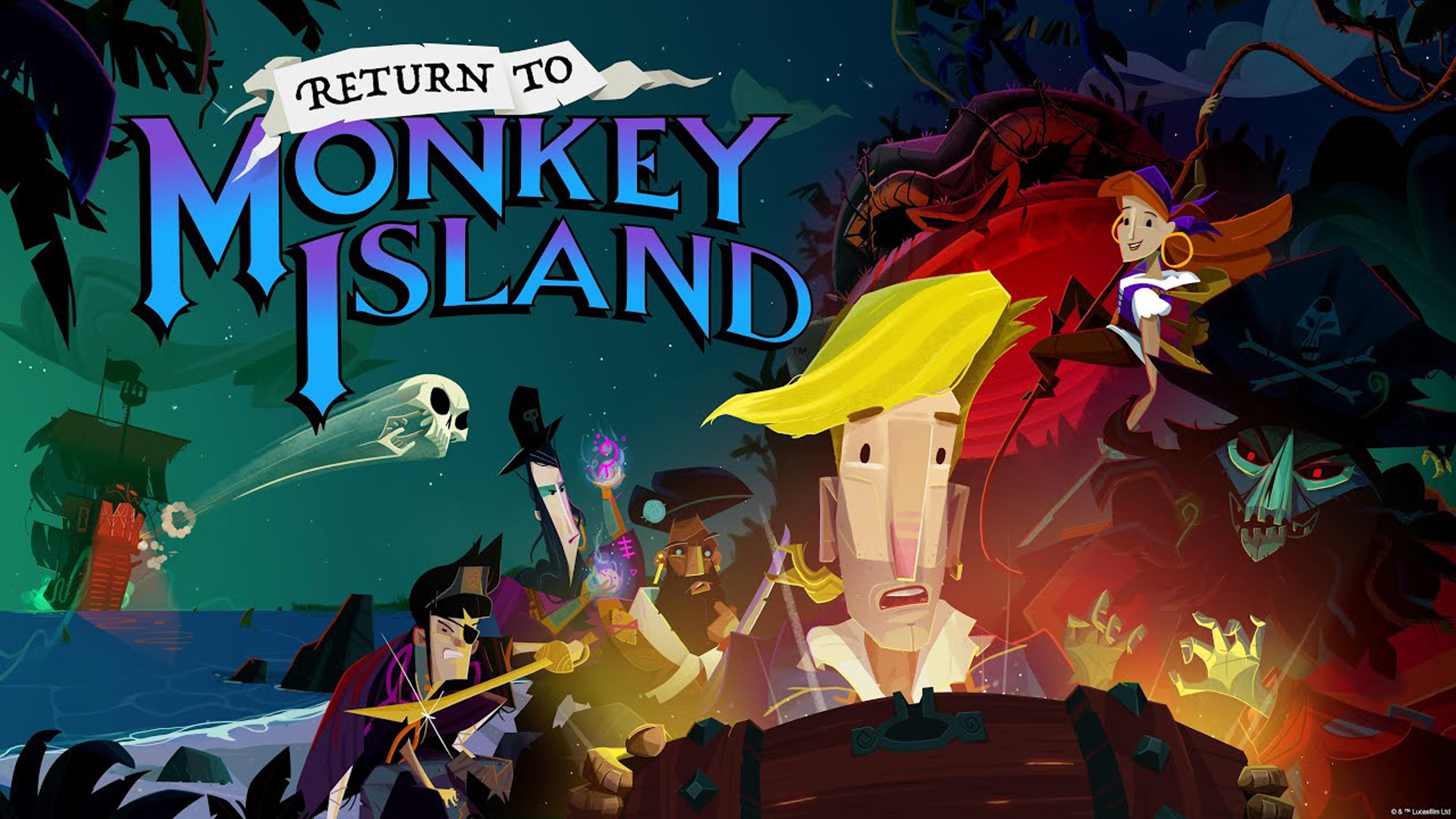
Release date: September 19, 2022
Platform(s): PC, Nintendo Switch
Developer: Terrible Toybox
Publisher: Devolver Digital
That's a trap Terrible Toybox could have easily tumbled into. Thimbleweed Park, the studio's previous effort, was an adventure game designed for players who had already earned their Merit Badges in the genre. It was fantastic, and aggressively determined to replicate the past – antiquated user experience, logic traps, pixel hunting, and all. Return to Monkey Island does away with such pretensions from the outset. The verb–object design paradigm of the SCUMM system has been replaced with a more intuitive, context-sensitive interface; reactive dialogue trees make supporting characters feel like they're more than puzzle prompts; while the colorful, angular aesthetic succeeds in making everything old feel new again.
The truly awesome visual shift – under the direction of Rex Crowle, who helped establish the unique styles of Tearaway and Knights & Bikes – is a direct reflection of what Terrible Toybox is able to achieve narratively here. The Return to Monkey Island is not what you'll expect it to be; a silly pirate story masks an effective exploration of the difficulties inherent in trying to recapture past successes and account for any failures you made along the way. You'll encounter recognizable characters and locations through a literally warped visual lens, which is something Guybrush Threepwood and his companions contend with throughout this adventure in one way or another. Return to Monkey Island understands that you can't go home again, and it spends its 10-hour runtime reflecting on that sad reality of life with a wry, knowing smile.
Look behind you, a three-headed monkey…
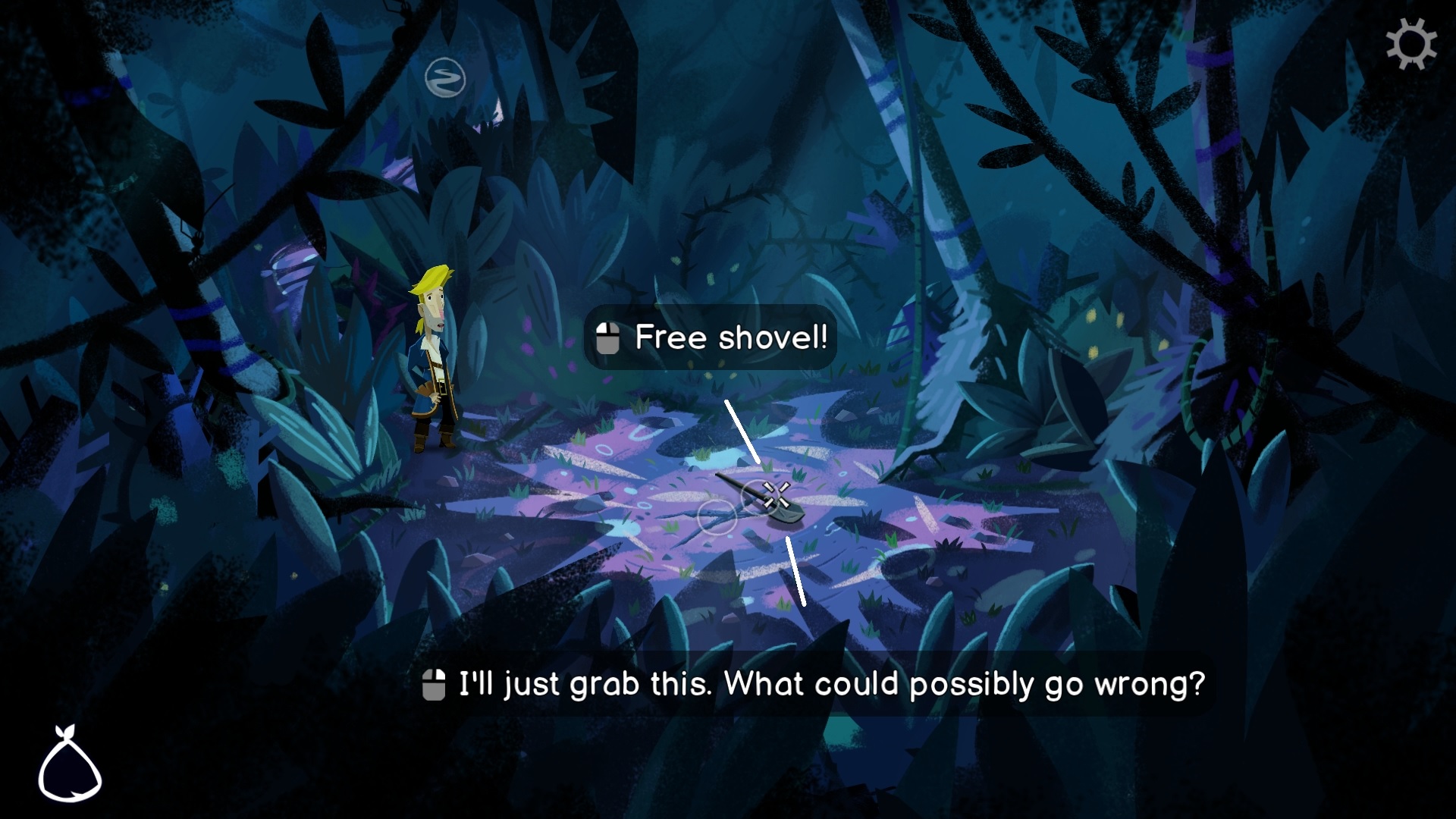
Return to Monkey Island is a love letter to The Secret of Monkey Island and Monkey Island 2: LeChuck's Revenge, but you'd needn't have played either to enjoy this new point-and-click adventure. If you've been with the series since the beginning, you'll enjoy the resolution to a cliffhanger that has been hotly debated for the last 30 years, some brilliant cutaway gags and recurring in-jokes, and find joy in rejoining a cast that the mainstream video game industry has all-but left behind. But Return to Monkey Island does take steps to welcome new pirates seeking adventure, fame, and fortune.
Return to Monkey Island features two difficulty modes: Casual, which strips puzzles back to their barest form; and Hardcore, which presents puzzle threads so tangled that you'll spend hours trying to unravel them all. While Casual charts an easier path through the story – genuinely funny, and packed with the sort of laugh-out-loud interactions that you so rarely see games today – Hardcore is worth the occasional headache. Particularly as Terrible Toybox has thrown an intuitive tips system into the mix, which offers incremental hints towards puzzle progression should you need an assist.
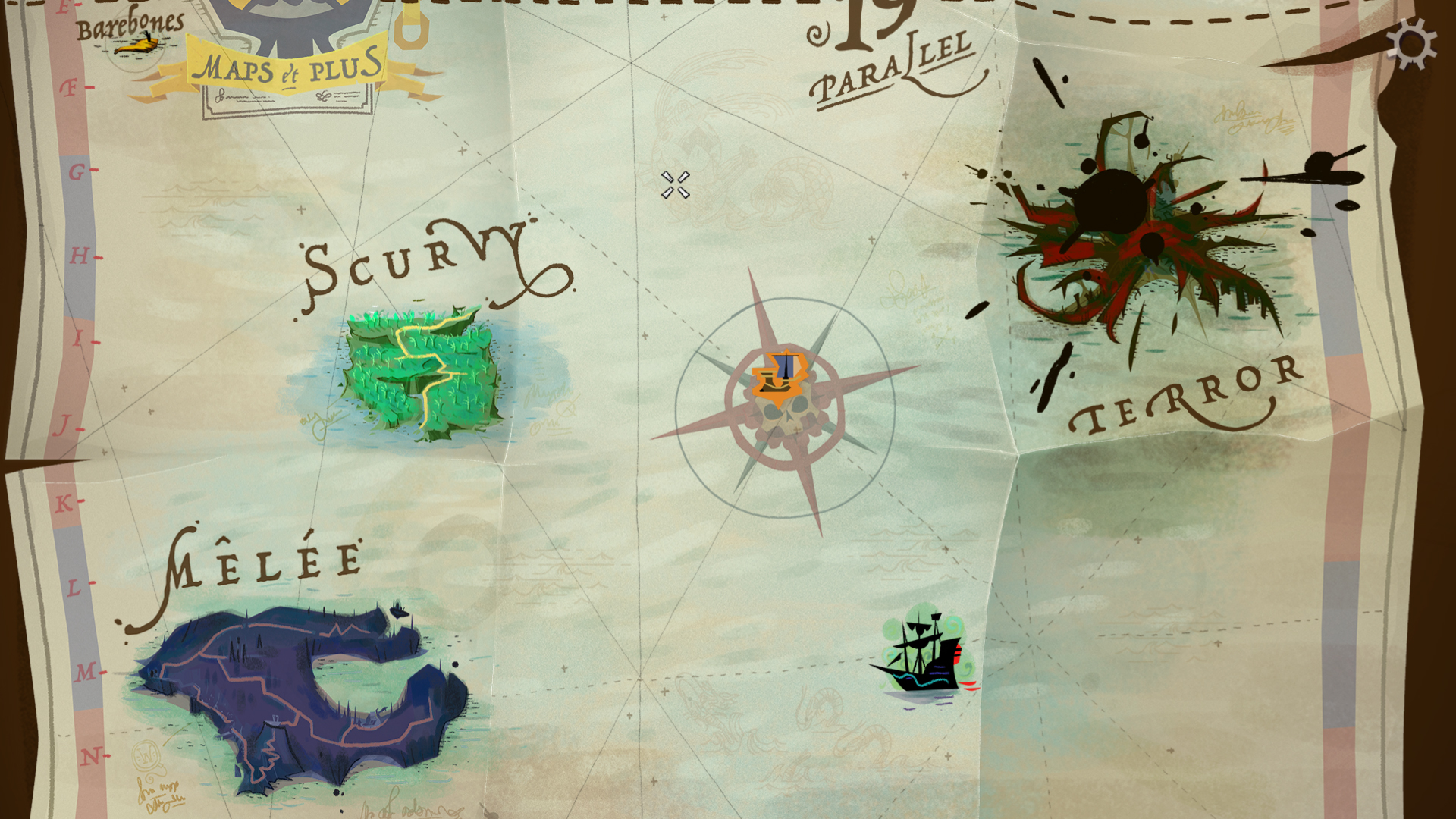
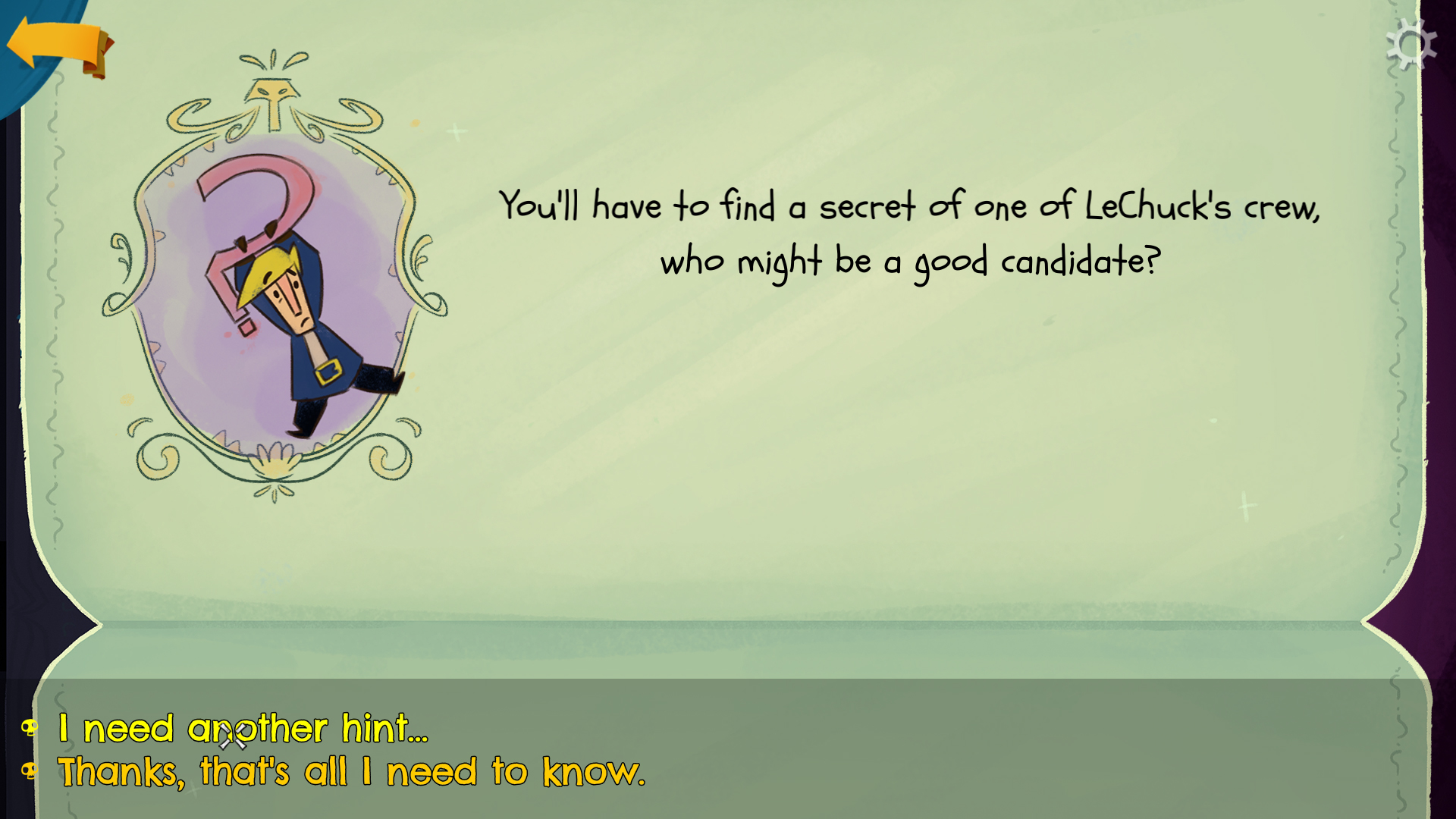
The sense of gratification you feel after overcoming adversity in a point-and-click adventure is unlike anything else. When confronted with an obtuse puzzle, a walkthrough can help you progress but ultimately rob you of the joy of discovery. Return to Monkey Island's Hint Book circumvents this by offering incremental tips; if prompted, it'll remind you of your situation, the items in your inventory, or the people that exist around you. If you want more help, it's happy to provide it – although a slight nudge in the right direction can often help connect the dots.
The point-and-click adventure genre is enjoying a rebirth. Kentucky Route Zero and Norco sought to draw from more ambitious narrative frameworks, Chinatown Detective Agency imbued its puzzle solving with real-world sleuthing, while games like Jenny LeClue: Detectivú and Beyond a Steel Sky recaptured the old ways in more modern packages. It's difficult to judge Return to Monkey Island's place in a genre that its predecessors helped pioneer. At times, Return feels like an intricately crafted time capsule – a reminder of the heart, wit, and humor that has always underpinned the best point-and-click adventure games. And yet it so often feels quietly revolutionary, a window into the direction Lucasfilm Games could have taken if folks like Gilbert and Grossman had stuck around throughout the '90s,
Which is all to say this: Return to Monkey Island feels like a worthy sequel to LeChuck's Revenge. Admittedly, some of the series' sharper edges have been sanded down over the last 30 years – even at their most complicated, the puzzles aren't as needlessly obtuse as I expected them to be – but that feels like a natural concession, given the circumstances. Return to Monkey Island isn't without its gaps in logic, and some may lament the narrative threads that are left dangling, although that doesn't detract from what Terrible Toybox has achieved here. Return to Monkey Island succeeds in not only breathing new life into a beloved world, but is able to make it feel relevant again in a new generation.
Return to Monkey Island was reviewed on PC, with a code provided by the publisher.
More info
| Genre | Adventure |

Josh West is the Editor-in-Chief of GamesRadar+. He has over 15 years experience in online and print journalism, and holds a BA (Hons) in Journalism and Feature Writing. Prior to starting his current position, Josh has served as GR+'s Features Editor and Deputy Editor of games™ magazine, and has freelanced for numerous publications including 3D Artist, Edge magazine, iCreate, Metal Hammer, Play, Retro Gamer, and SFX. Additionally, he has appeared on the BBC and ITV to provide expert comment, written for Scholastic books, edited a book for Hachette, and worked as the Assistant Producer of the Future Games Show. In his spare time, Josh likes to play bass guitar and video games. Years ago, he was in a few movies and TV shows that you've definitely seen but will never be able to spot him in.
